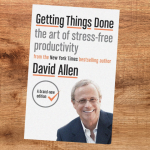Imagine a life free from financial anxiety, where your money works for you, not vice versa. Financial freedom is essential: having the knowledge and resources to live on your terms, pursue your dreams, and provide for your loved ones without constant worry. The good news is that achieving this freedom isn’t a secret; it’s a skill you can learn. Countless experts who’ve transformed their financial lives have shared their wisdom in accessible, practical books.
1. “The Family Bank: The Key to Generational Wealth”
Written by John H. Nebeker
The Family Bank offers a clear roadmap for anyone aiming to build lasting wealth for future generations. Nebeker breaks down complex financial concepts into actionable steps, offering insights into how families can unite around shared financial goals.
Key Takeaways
- Family Wealth-Building Strategies: Learn how to create a financial structure that benefits you and your descendants. Nebeker emphasizes the importance of identifying shared family goals to unify efforts and maximize impact. By creating a family financial framework, members can pool resources, reduce waste, and achieve more together than they could individually. This strategy fosters a sense of responsibility and accountability, ensuring every member contributes to the collective vision. It also provides a way to teach younger generations about financial literacy and stewardship.
- Creating a Legacy: Nebeker provides practical advice on building a lasting financial legacy through intelligent planning and communication. A key element of legacy building is making a clear plan outlining your values, financial goals, and long-term vision for wealth. He encourages families to document and revisit this plan regularly, ensuring it adapts to changing circumstances.
- Intergenerational Wealth Transfer: Discover strategies to effectively pass down wealth, minimize tax burdens, and protect assets. Nebeker highlights the importance of utilizing trusts, wills, and other legal tools to safeguard wealth and streamline the transfer process. He also delves into the role of estate planning in reducing the tax liabilities that often diminish inheritance amounts. Clear communication with heirs ensures they understand and respect the financial structures. Nebeker advises families to work closely with financial advisors and legal experts to craft a tailored plan that accounts for unique family dynamics and goals. Teaching the next generation about responsible wealth management ensures they are prepared to handle the assets they receive.
Lesson Learned
This book emphasizes the power of family collaboration in achieving financial goals. Nebeker shows how open communication and shared planning can lead to a secure financial future for generations. Imagine your children and grandchildren thriving through your daily decisions—a powerful motivator.
2. “The 9 Steps to Financial Freedom”
Written by Suze Orman
Suze Orman’s name is practically synonymous with financial empowerment, and her book The 9 Steps to Financial Freedom delivers what its title promises: a clear roadmap to taking control of your finances.
Key Takeaways
- Step-by-Step Guidance: Orman provides a structured plan for achieving financial independence, covering everything from budgeting to investing. She outlines nine steps to build a solid economic stability and growth foundation. By following these steps, readers can identify their financial priorities, set realistic goals, and create actionable plans to achieve them. Her advice is straightforward and actionable, ensuring that anyone can quickly implement it, no matter their financial background.
- Debt Management and Credit Building: Orman provides a structured plan for achieving financial independence, covering everything from budgeting to investing. She outlines nine steps to build a solid economic stability and growth foundation. By following these steps, readers can identify their financial priorities, set realistic goals, and create actionable plans to achieve them. Her approach is simple and effective, designed to be understood and applied by anyone, no matter where they stand financially.
- Saving and Investing: Master the art of saving for short- and long-term goals while growing wealth through smart investments. Orman stresses the need to build an emergency savings buffer, providing a financial safety net for unforeseen costs and offering peace of mind in challenging moments. She also emphasized the need for long-term investment strategies, like contributing to retirement accounts and diversifying portfolios. Her advice empowers readers to take proactive steps in managing their money, helping them grow wealth steadily and sustainably over time.
Lesson Learned
Discipline and consistency are vital themes in this book. Orman’s approach shows that small, consistent efforts—like sticking to a budget or investing regularly—can yield significant financial rewards over time. It’s not about getting rich overnight; it’s about building a solid financial foundation step by step.
3. “The Automatic Millionaire”
Written by David Bach
What if becoming a millionaire didn’t require a grueling effort but instead depended on setting up a few automated systems? That’s the core idea behind David Bach’s The Automatic Millionaire.
Key Takeaways
- Automation Is Key: Bach emphasizes automating savings and investment contributions to ensure consistent growth. Automation removes the risk of forgetting or procrastinating, making financial habits effortless. By setting up automated transfers to savings or investment accounts, individuals can consistently prioritize their financial goals without relying on willpower. This system creates a steady path toward wealth-building, no matter how hectic life becomes.
- Harnessing Compound Interest: Learn how small, regular contributions can snowball into significant wealth over time. Bach illustrates how compound interest allows even modest investments to grow exponentially, given enough time. The earlier you start, the greater the impact, as compounding works best with long-term consistency. This concept underpins the importance of starting automated contributions as soon as possible, no matter the amount.
- Practical Systems: Bach shares simple tools to streamline your financial journey from automatic transfers to retirement accounts. He explains how to set up mechanisms like direct deposit splits, where part of your paycheck is automatically saved or invested. Bach also introduces tools like robo-advisors and employer-matching programs that can accelerate wealth accumulation. These systems are easy to implement and provide a hands-off approach to managing and growing your finances.
Lesson Learned
Automation is a game-changer. Setting up systems to handle your savings and investments eliminates the risk of human error (or forgetfulness). Bach’s philosophy is simple: if you never see the money, you won’t spend it—and over time, those automatic contributions will grow into something substantial.
4. “The Total Money Makeover”
Written by Dave Ramsey
Dave Ramsey is known for his no-nonsense approach to financial management, and The Total Money Makeover doesn’t disappoint. This book provides a lifeline if you’re buried in debt or living paycheck to paycheck.
Key Takeaways
- Get Out of Debt: Ramsey’s famous “Debt Snowball Method” helps you systematically eliminate debt, one step at a time. This method focuses on eliminating the smallest debts first, building momentum, and feeling accomplished with each step forward. Focusing on one debt at a time motivates you while freeing up more funds to tackle more significant obligations. It’s a practical and psychological approach that helps people stay consistent in their journey toward becoming debt-free.
- Budgeting and Saving: Discover how to develop and maintain a budget focusing on saving while cutting unnecessary expenses. Ramsey advocates for a zero-based budget, where every dollar has a purpose, ensuring no money goes unaccounted for. He emphasizes setting aside money for emergencies and future goals, which reduces reliance on credit in tough times. By tracking expenses and making intentional spending choices, individuals can take control of their finances and live within their means.
- Wealth-Building Strategies: Once debt-free, Ramsey outlines how to build wealth through investing and disciplined financial habits. He highlights the importance of contributing to retirement accounts, such as IRAs and 401(k)s, to secure your financial future. Ramsey also stresses the value of living below your means, even as your income grows, to maximize savings and investments. His plan encourages a long-term mindset, helping individuals achieve financial stability and independence.
Lesson Learned
Ramsey’s book’s biggest takeaway is the importance of discipline. Achieving financial freedom requires sacrifices—like cutting back on luxuries or sticking to a strict budget—but the long-term rewards are well worth it.
5. “Rich Woman: A Book on Investing for Women”
Written by Kim Kiyosaki
In Rich Woman, Kim Kiyosaki, wife of Rich Dad Poor Dad author Robert Kiyosaki, delivers a compelling message that financial independence is achievable for women, not just men. This book is a rallying cry for women to take charge of their finances and build wealth on their terms.
Key Takeaways
- Financial Empowerment for Women: Kiyosaki addresses women’s unique challenges in achieving financial independence and provides actionable solutions. She highlights barriers such as the gender pay gap, societal expectations, and a lack of representation in economic decision-making. She offers practical strategies to navigate these challenges, empowering women to take control of their financial destinies. Her message is clear: empowerment begins with self-belief and proactive steps toward financial independence.
- Diverse Investment Strategies: Kiyosaki explains how women can build wealth through intelligent investments, from stocks to real estate. She emphasizes the importance of diversifying portfolios to reduce risk and maximize returns. Kiyosaki also breaks down complex investment concepts into practical steps, making them accessible to beginners. By examining different types of investments, women can uncover opportunities that match their financial objectives and comfort with risk.
- The Importance of Financial Literacy: Kiyosaki underscores that acquiring knowledge is essential for building confidence and achieving success in managing finances. She advocates for continuous learning about money management, investing, and entrepreneurship to stay ahead in a rapidly changing economic world. Financial literacy equips women to make knowledgeable choices and gives them the tools to pass on these skills to the next generation. By investing in their knowledge, women can break cycles of financial dependency and achieve lasting independence.
Lesson Learned
Women have immense financial potential, and this book encourages them to harness it. By embracing financial literacy and taking proactive steps, women can secure their futures and inspire others to do the same.
Start Your Journey to Lasting Change Today
These five books aren’t just guides—they’re roadmaps to financial freedom, offering actionable strategies for every stage of your financial journey. Whether tackling debt, automating savings, or creating generational wealth, each book provides valuable tools to help you succeed. The trip to financial freedom begins with education and a willingness to act. Pick up one or all of these books and apply their lessons today. Every small step you take now can set the stage for a more secure and abundant tomorrow.



